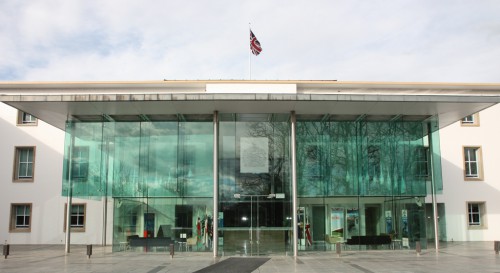19th January 2015
The FCO’s Australia network: leaner and fitter
When I leave Australia in a few weeks time, I will be leaving a network of five posts (High Commission, two Consulates General and two Consulates) with nearly a third fewer staff than we had when I arrived four years ago. Almost all of the affected positions were “back office” rather than customer facing or policy work.

This is the result of a series of reforms driven from London to find cost savings and greater efficiencies against the backdrop of significant public spending cuts in the UK. In essence we have seen two processes at work, Hubbing and Outsourcing. They will be familiar to most people working in large international organisations today
When I came here we had large teams doing the back-office processing of applications for visas and passports. Hubbing such processes at a larger scale offers an opportunity to build more efficient workflow and greater specialist expertise, particularly given the increasingly important security aspects of such processes. It can also be relocated to lower cost operating environments. Passports moved first to a regional processing centre in Wellington, and then to HM Passport Office in the UK. Visas are hubbed into a big ops centre at our Embassy in Manila. We have also hubbed the administration of financial accounting for all of our missions around Asia Pacific into Manila.
We have outsourced the customer facing aspects of the Visa process to Visa Application Centres, or VACs, run by a private sector organisation. Now, instead of coming into our offices, with the inevitable cumbersome security constraints, visa applicants visit a VAC in a convenient city centre location in major Australian cities. We have also outsourced the facilities management (FM) aspects of office and residential buildings to a professional FM company. A single contract covers all of our missions across Asia Pacific, permitting higher standards of professionalism and efficiency.
So we’ve been through a substantial amount of change over the last four years. The temporary backlog in processing passport applications in the UK, associated with a surge in demand earlier this year, did regrettably cause significant inconvenience to a number of applicants, but processing times now appear to be returning to normal. Overall, the changes I’ve outlined above have managed to deliver significant financial savings for the taxpayer, with relatively little long term impact on our outputs or our customers.